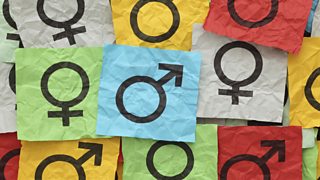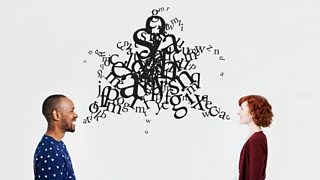Trans? Non-Binary? Genderqueer? CN Lester on language and gender identity
, author of 'Trans Like Me: A Journey for All of Us', to talk about language and gender identity.
Here CN talks about what it means to be transgender and how they see language being used by, and about, people who identify as trans, non-binary or genderqueer.
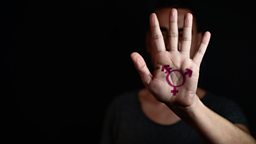
Transgender
CN Lester explains how the word transgender can ‘mean an awful lot of things, depending on the background of the person using the term’ and ‘the year that we’re using the term’. At the moment, a lot of transgender people prefer the word trans, as ‘it’s the broadest possible definition’ we can give.
The ‘trans umbrella’ includes people underneath it ‘who in one way or another have moved away from the gender and the sex they were assigned at birth.’ These individuals could be transvestite, or what we traditionally call transsexual under a medical model, but crucially they have all experienced some form of discrimination because they are gender non-conforming.
Lester states that ‘a huge misconception is that being trans is new.’ The word transvestite was being used in Germany in the late 1800s, so in terms of trans as this modern community, defined by a way of ‘linguistically challenging the binary genders around us, it’s more than a hundred years old already.’
LGBTQ
CN describes LGBTQ as ‘a nice alphabet soup’, which incorporates lesbian, gay, bisexual, transgender and queer or questioning. We can add ‘I’ for intersex or ‘A’ for asexual – it really depends what group we’re talking about and whether a person wants to be included in the abbreviation or not. But, a shorthand way of explaining it would be to say, ‘people who are discriminated against because of their gender and sexuality.’
Genderqueer
Genderqueer is a word that came out of the queer movement in the nineties and the queer theory movement in academia. CN explains how, ‘queer isn’t just a term that we’ve reclaimed because it was a slur used against us – it’s that sense of queering something, sort of turning it on its side.’ In this sense, genderqueer is thinking about the notion of gender in a different way; it’s turning it around and reimagining it.
Non-binary
Non-binary is a term that has come into increased common usage in the trans communities in the last five to ten years. CN defines the word as ‘someone who is outside of a gender binary.’ So, ‘if gender binary is male, female – and the crucial part of a binary being that it only has two and those two are locked together – if someone is non-binary they are somehow disrupting that, they’re moving outside of it.’ Someone who describes themselves as non-binary is saying ‘hang on a second, there’s more to gender and there’s more to sex than this.’
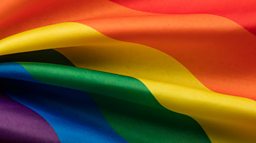
Cisgendered
In the book, ‘Trans Like Me’, CN describes cis or cisgendered as the ‘antonym of trans; just as we cannot describe being gay without having a word for straight, we need a word to describe experiences which are not trans, as well as experiences that are.’ Crucially, it’s trying to find a neutral term that isn’t ‘not trans.’
Examining the Latin roots helps to provide some clarity too: trans means ‘across’ whereas cis means ‘this side of’. Another word that could be applied to gender is ultra, meaning ‘beyond’.
They, he or she?
Pronouns are important: a trans person might identify as ‘they’ rather than ‘he’ or ‘she’. CN argues that ‘they’ is not their ‘preferred’ pronoun - it simply is their pronoun. Some people, however, are worried about using the gender-neutral pronoun when applying it to people, because they consider it confusing, grammatically incorrect or somehow disrupting the norm. Laura Wright explains how, in actual fact, the rules have never been rigid: we still use ‘you’ to mean ‘everyone’ and ‘they’ was used historically to mean ‘he’ or ‘she’.
Does language matter?
CN explains how having a word like trans is incredibly powerful for the trans community: ‘without having words to describe who you are, there’s no way that you can communicate who you are to other people.’ Crucially, it gives trans people a term to describe themselves ‘that isn’t just freak’.
It isn’t about pushing for something politically correct, odd or difficult – but using compassionate and empathetic language, ‘which understands someone else’s life experience and somebody else’s viewpoint’.
Sometimes the language surrounding gender can feel like a minefield, with many people too afraid of saying the wrong thing to ask or try. But CN believes it’s better for us to attempt to use the correct language around gender and get it wrong, than not try at all: ‘If you get it wrong, just correct yourself and keep going.’
Why girls won’t be girls and boys won’t be boys
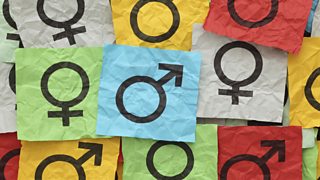
Professor Cordelia Fine explores the science behind gender, with Gareth Mitchell.
-
![]()
Michael Rosen talks language and gender identity with CN Lester, author of Trans Like Me.
-
![]()
What should the role of parents be in cases where children want to explore other genders?
-
![]()
From 'yours faithfully' to 'cheers', what different sign offs say about you.
-
![]()
The history of Polari, the language of gay men.

